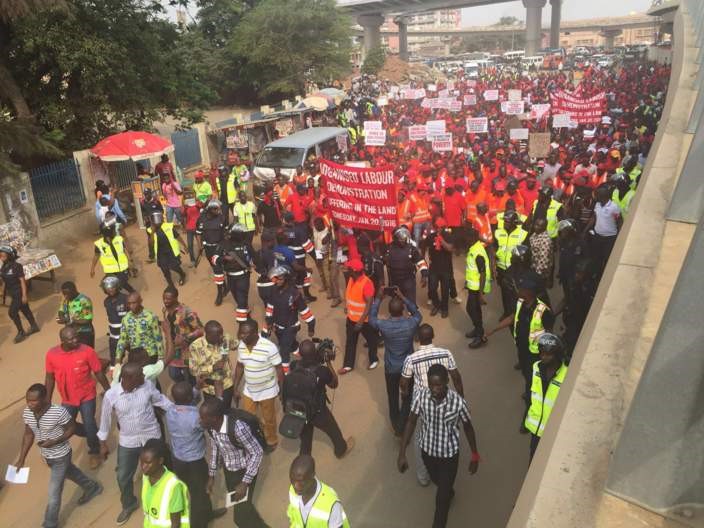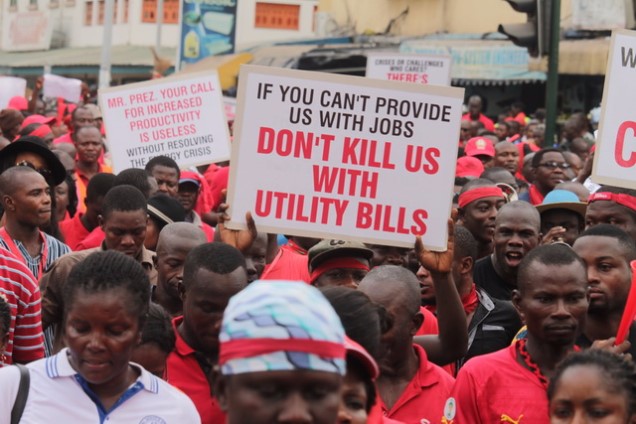
The trade unions in Ghana are showing that action is the way to fight price increases and poverty. Last Wednesday (20th January, 2016) the trade unions in Ghana organised demonstrations in Accra and several other cities. These protests were against the large price increases for electricity, water and fuel.
In December 2015, the government announced increases of nearly 60 per cent for electricity and nearly 70 per cent for water. It then went on increase the price of petroleum products by more than a quarter early in 2016. Protesters are also complaining about the introduction of new taxes and an increase in existing ones. They are pushing for a 50 percent increase in the salaries of public sector workers.
The Trade Union Congress (TUC), the main trade union centre in Ghana promptly organised demonstrations in Accra and several other cities on Wednesday, 20th January, 2016. Large demonstrations were organised in all ten regional capitals from Tamale in the north to Cape Coast in the South.
The demonstration in Kumasi was reported to be ‘very impressive’. Teacher unions, health workers union, agricultural workers union and officials in the judiciary poured onto the streets with chants of ‘we no go gree’. “I was not anticipating that the whole Kumasi will leave everything and come” confessed Kofi Asare, Chair of the Kumasi Council of Labour.
Some of the placards read: “poverty is the worst form of violence”. Placards also accused the government of insensitivity to the plight of workers and blamed the IMF for the government’s decision to impose the new energy levy on top of tariff increases.
Secretary General of the Trades Union Congress, Kofi Asamoah, said the workers’ action was intended “to bring home to government… the difficulties and the desperate social and economic conditions… have occasioned.”

In Ghana, the minimum wage is increased every year. Last year, it was increased by 17 per cent to GH¢7 (N350 per day or N7,500 a month) a day. So in Ghana the trade unions do not wait for years for increases in the minimum wages.
The university lecturers, members of the Teachers’ and Education Workers’ Union (TEWU) went on strike for a week from Monday 18th January. Peter Lumor, Chair of TEWU, said there was a consensus that action was needed after three years of meetings. The strike was to address the salary issues by “bridging the gap between senior and junior staff.” The union is now set to have negotiations with the Fair Wages and Salaries Commission before the end of January.
Protests and strikes in Ghana should encourage the leaderships of the NLC and TUC in Nigeria to lead action over the coming months for an increment in the minimum wage which is commensurate with the increased cost of living for working class-people. This is made worse with the increase in electricity tariffs and the effective increase in fuel costs due to the shortages that we have suffered over the last year.








